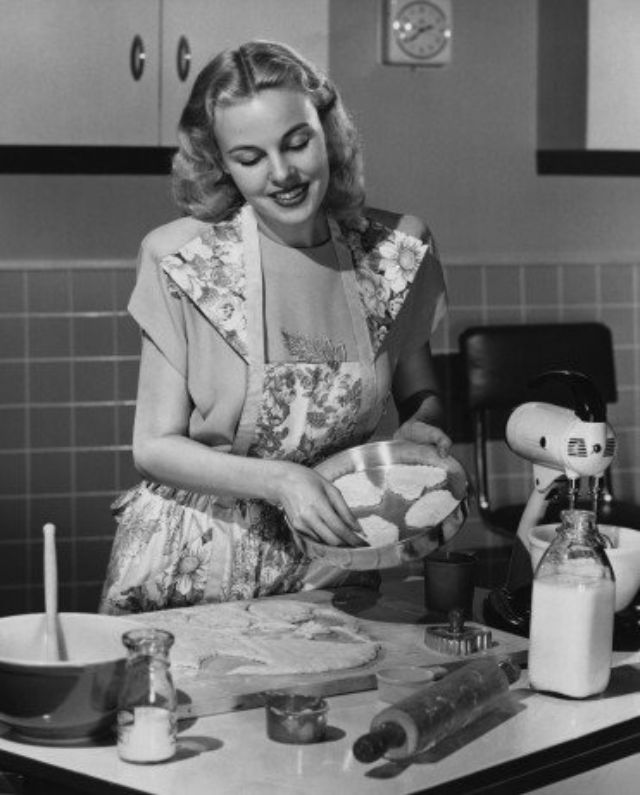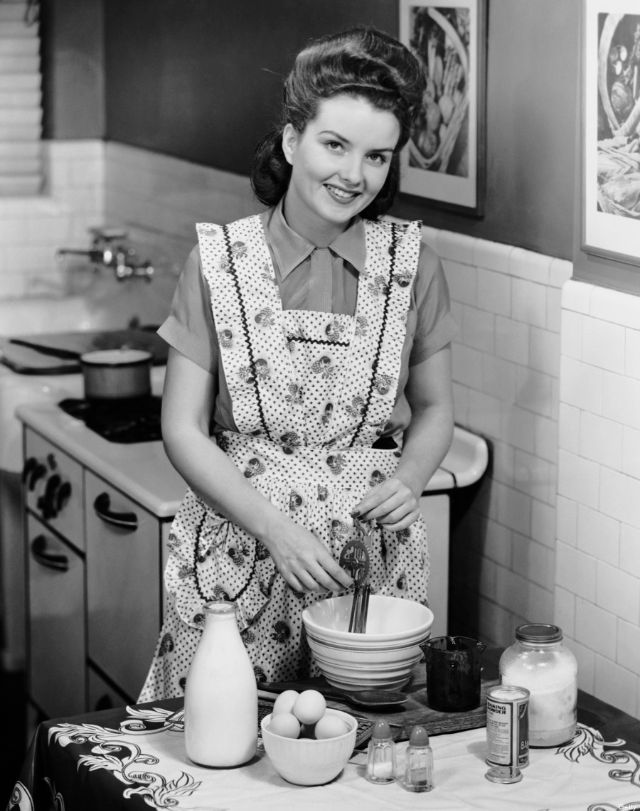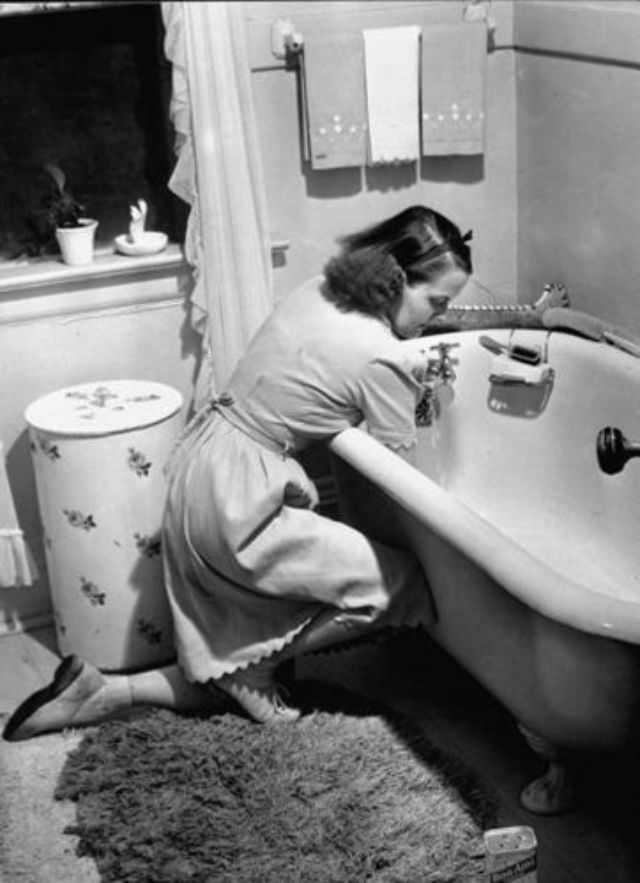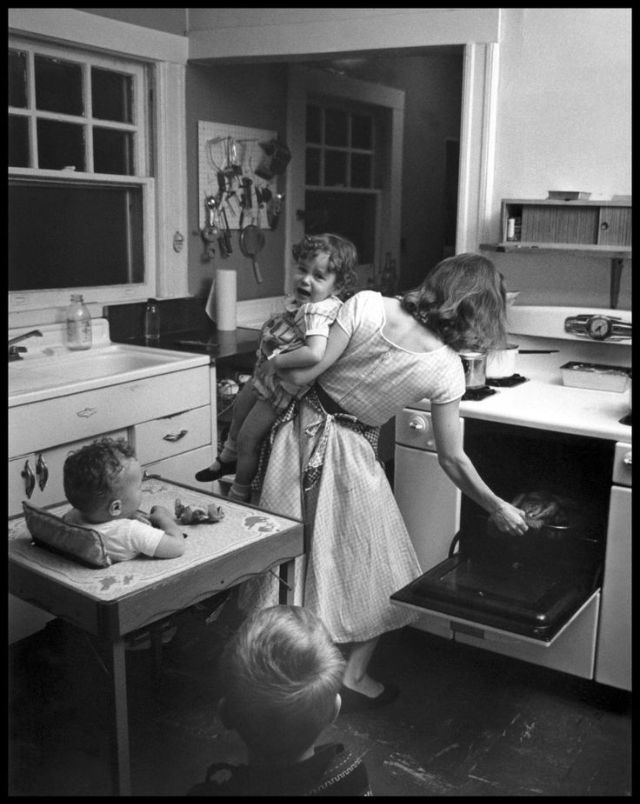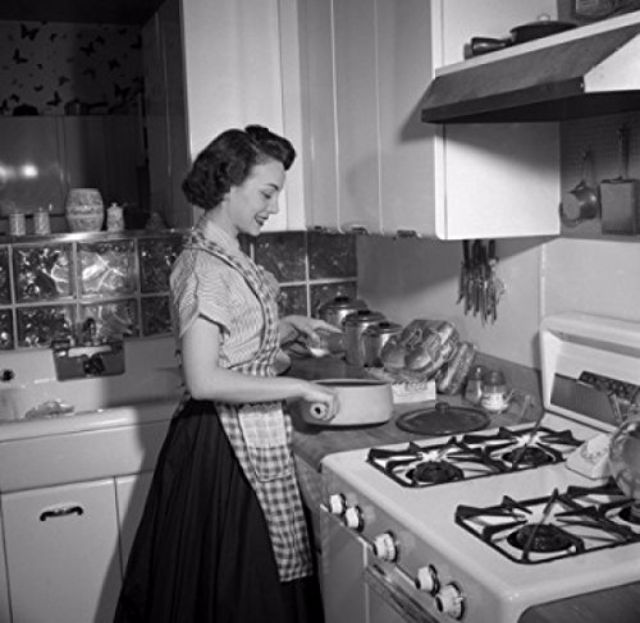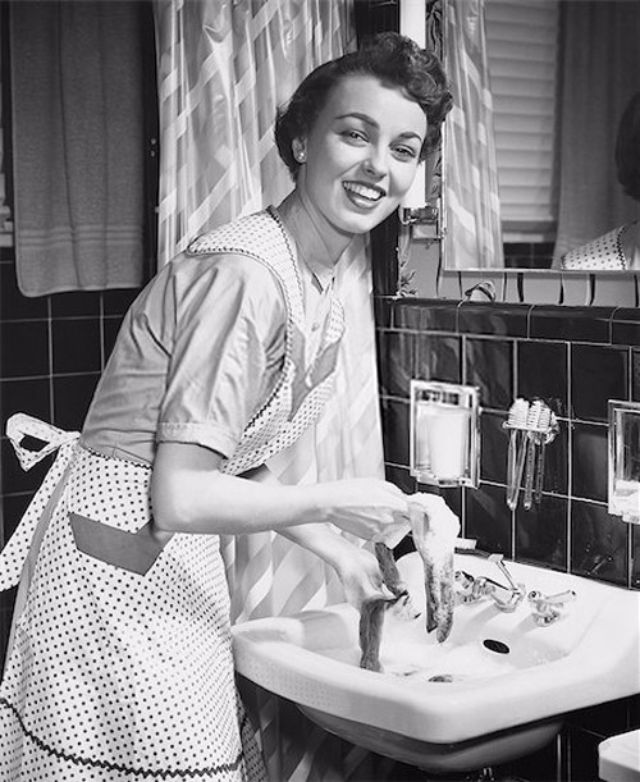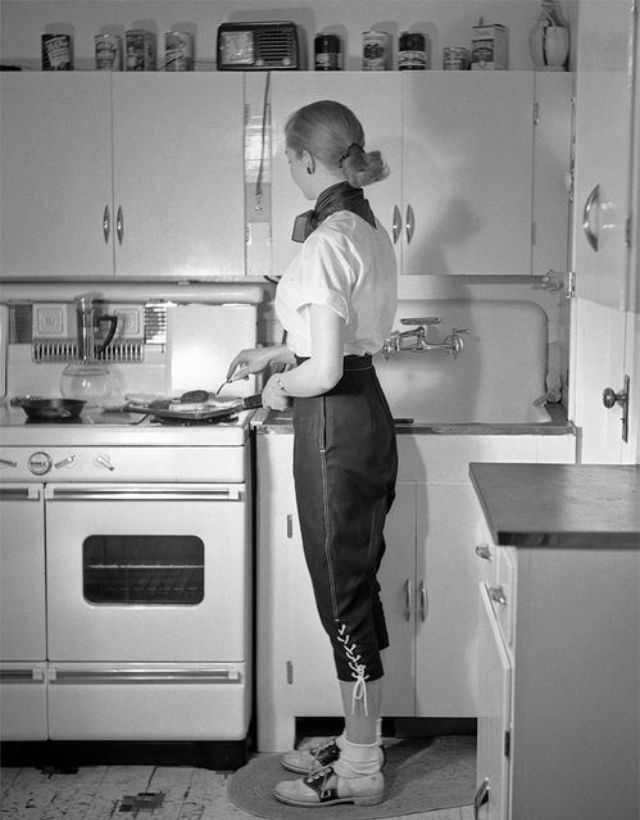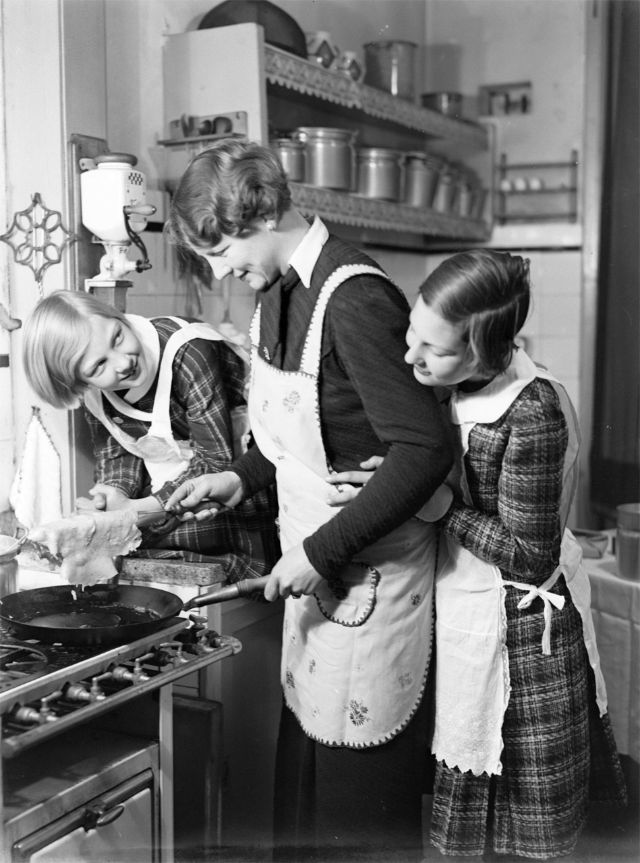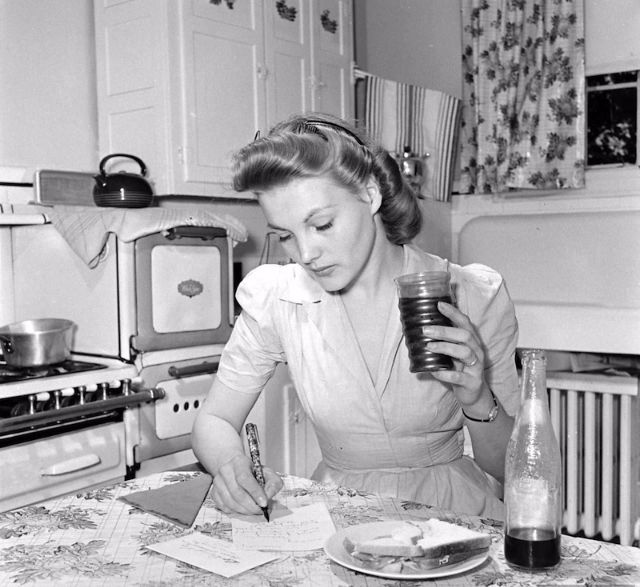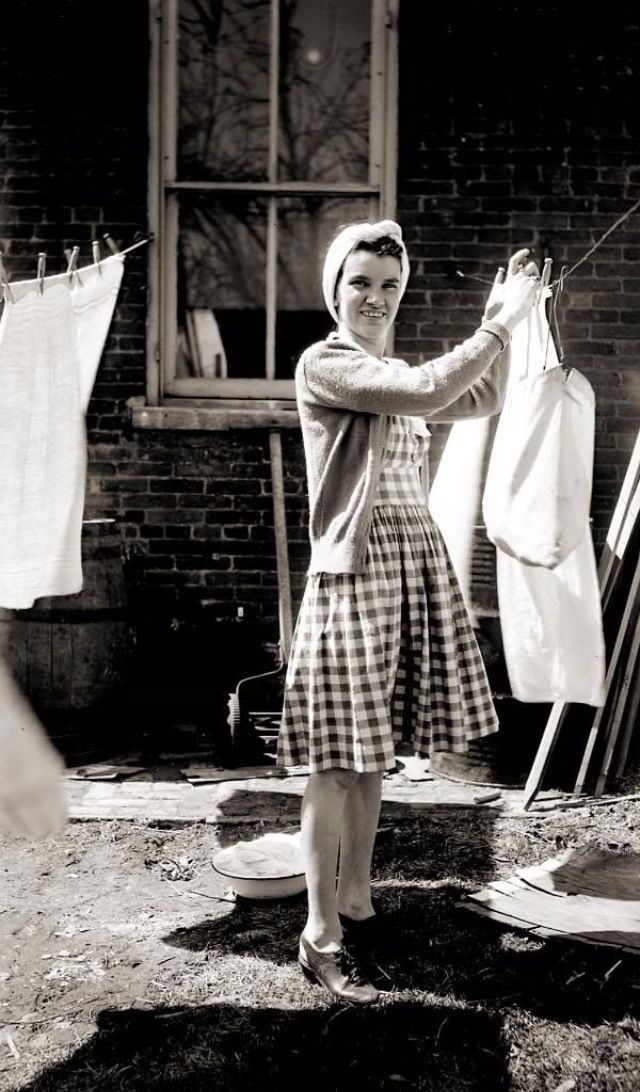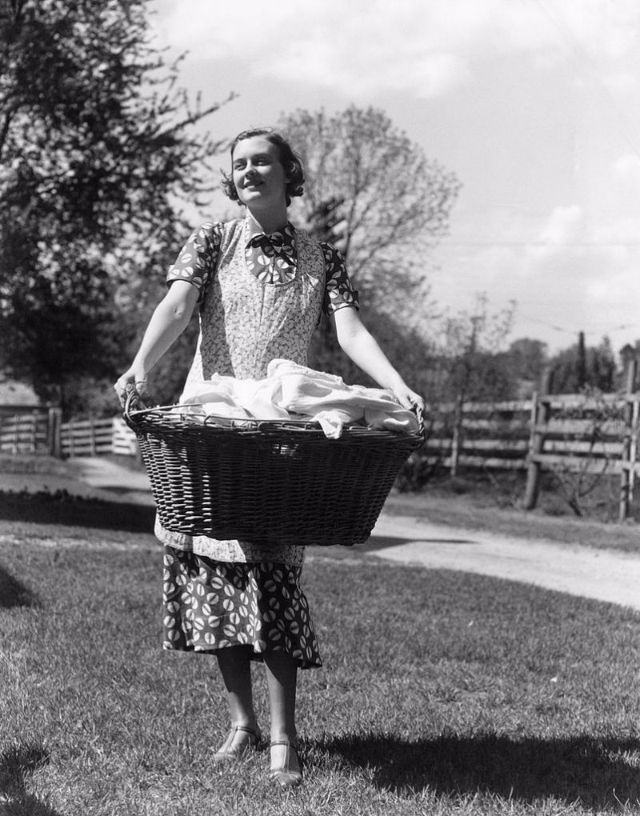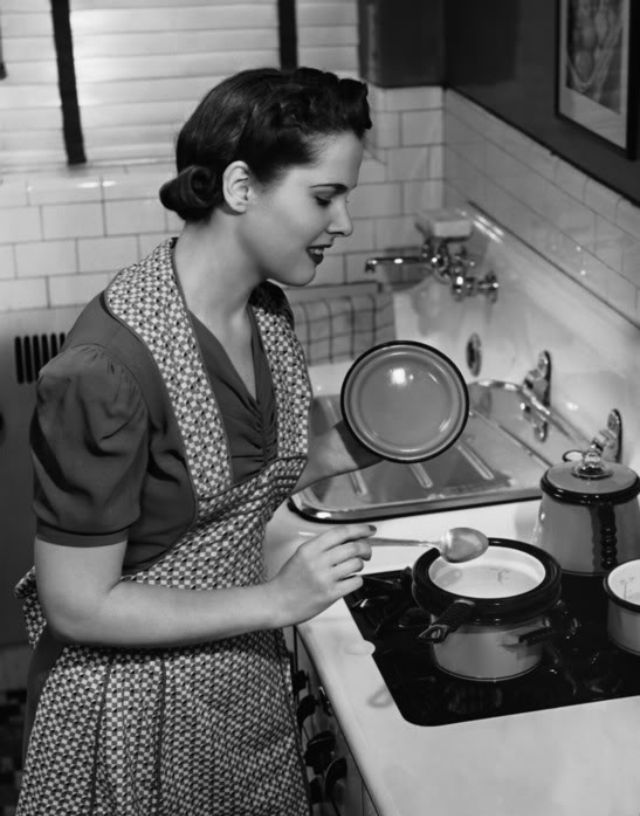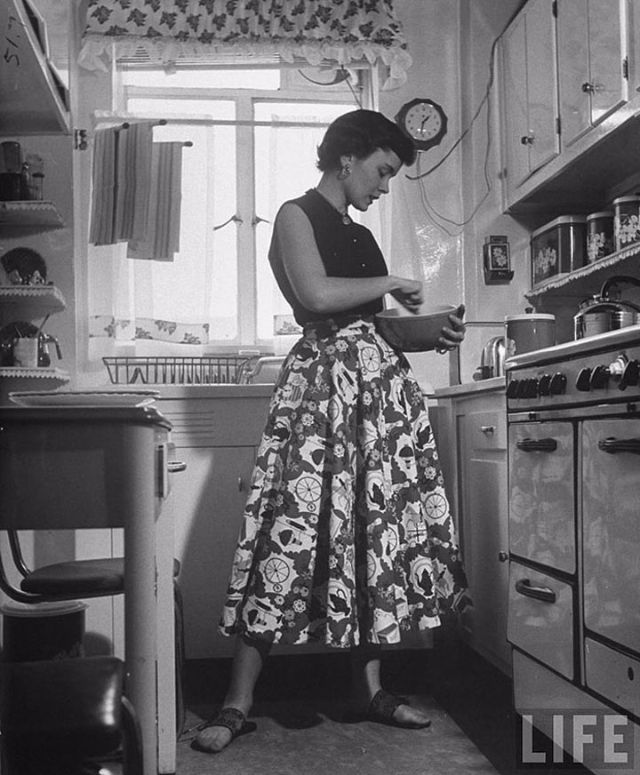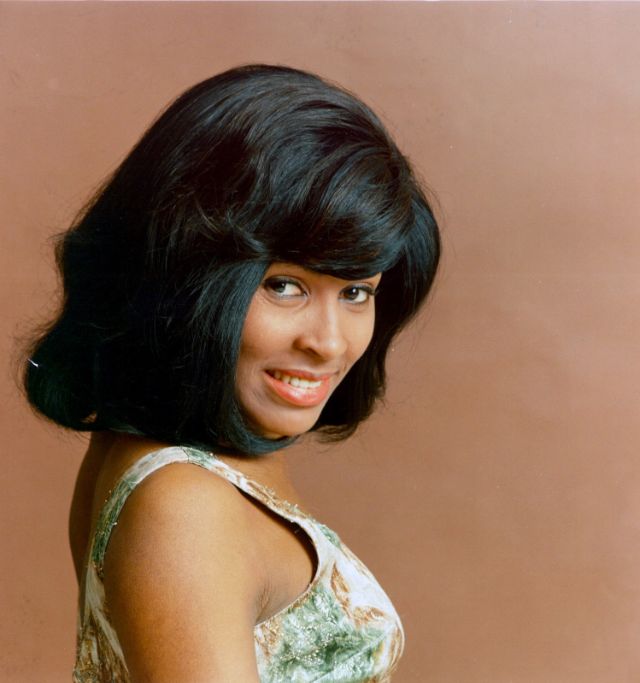They do everything: washing dishes, cleaning, laundry, clothesline, taking care of children in the spirit of fun and smiles on their faces. They are young beautiful housewives of the 1940s and 1950s.
The life of the average married woman in the 1940s and ’50s was very different from that of today’s woman. This was the age of respectability and conformity. Very few women worked after getting married; they stayed at home to raise the children and keep house. The man was considered the head of the household in all things; mortgages, legal documents, bank accounts. Only the family allowance was paid directly to the mother. Should a woman find herself in a loveless or violent marriage, she was trapped; she had no money of her own and no career.
![]() It was still unusual for women to go to university, especially working class women. Most left school and went straight into work until they married. Secondary schools – even grammar schools – prepared girls for this life: lessons were given in cookery, household management, darning, sewing and even how to iron an shirt properly. Girls were trained to look after their husband, their children and the house.
It was still unusual for women to go to university, especially working class women. Most left school and went straight into work until they married. Secondary schools – even grammar schools – prepared girls for this life: lessons were given in cookery, household management, darning, sewing and even how to iron an shirt properly. Girls were trained to look after their husband, their children and the house.
For the 1950s housewife there was no need to go the gym; her day-to-day jobs kept her physically active. She walked to the shops and took the children to school every day on foot; the housework she did was very labour-intensive without today’s gadgets and there were no such things as convenience foods or fast food outlets. Sweets and crisps (the only flavour available was ready salted) were treats rather than everyday foods.
The 1950s housewife had been prepared both at school and at home for her role in life; she took pleasure and pride in looking after her home and family to the best of her ability. However on the other side of the coin, she didn’t have a career outside the home and she had no income of her own, which left her dependent on her husband.
![]()
![]()
![]()
![]()
![]()
![]()
![]()
![]()
![]()
![]()
![]()
![]()
![]()
![]()
![]()
![]()
![]()
![]()
![]()
![]()
![]()
![]()
![]()
![]()
![]()
![]()
![]()
![]()
![]()
![]()
![]()
![]()
The life of the average married woman in the 1940s and ’50s was very different from that of today’s woman. This was the age of respectability and conformity. Very few women worked after getting married; they stayed at home to raise the children and keep house. The man was considered the head of the household in all things; mortgages, legal documents, bank accounts. Only the family allowance was paid directly to the mother. Should a woman find herself in a loveless or violent marriage, she was trapped; she had no money of her own and no career.
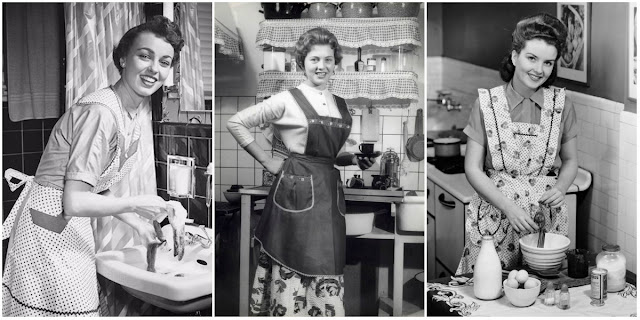
For the 1950s housewife there was no need to go the gym; her day-to-day jobs kept her physically active. She walked to the shops and took the children to school every day on foot; the housework she did was very labour-intensive without today’s gadgets and there were no such things as convenience foods or fast food outlets. Sweets and crisps (the only flavour available was ready salted) were treats rather than everyday foods.
The 1950s housewife had been prepared both at school and at home for her role in life; she took pleasure and pride in looking after her home and family to the best of her ability. However on the other side of the coin, she didn’t have a career outside the home and she had no income of her own, which left her dependent on her husband.

